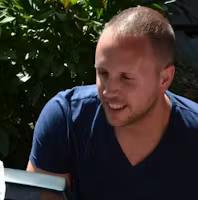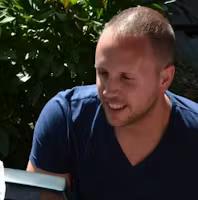This course is part of Methods and Statistics in Social Sciences.
This course cannot be purchased separately - to access the complete learning experience, graded assignments, and earn certificates, you'll need to enroll in the full Methods and Statistics in Social Sciences Specialization program. You can audit this specific course for free to explore the content, which includes access to course materials and lectures. This allows you to learn at your own pace without any financial commitment.
4.6
(4,451 ratings)
2,93,217 already enrolled
Instructors:
English
বাংলা, اردو, Tiếng Việt, 2 more
What you'll learn
Understand fundamentals of descriptive statistics
Master correlation and regression analysis
Apply probability theory to statistical problems
Use sampling distributions for inference
Construct and interpret confidence intervals
Conduct statistical hypothesis tests
Skills you'll gain
This course includes:
6.6 Hours PreRecorded video
9 assignments
Access on Mobile, Tablet, Desktop
FullTime access
Shareable certificate
Get a Completion Certificate
Share your certificate with prospective employers and your professional network on LinkedIn.
Created by
Provided by

Top companies offer this course to their employees
Top companies provide this course to enhance their employees' skills, ensuring they excel in handling complex projects and drive organizational success.





There are 9 modules in this course
This comprehensive statistics course covers essential concepts for understanding and analyzing data. Starting with descriptive statistics, students learn about central tendency, dispersion, and data visualization. The course progresses through probability theory and distributions, before exploring inferential statistics including confidence intervals and hypothesis testing. Students gain practical experience using R programming for statistical analysis.
Before we get started...
Module 1 · 2 Hours to complete
Exploring Data
Module 2 · 5 Hours to complete
Correlation and Regression
Module 3 · 3 Hours to complete
Probability
Module 4 · 3 Hours to complete
Probability Distributions
Module 5 · 3 Hours to complete
Sampling Distributions
Module 6 · 3 Hours to complete
Confidence Intervals
Module 7 · 2 Hours to complete
Significance Tests
Module 8 · 2 Hours to complete
Exam time!
Module 9 · 30 Minutes to complete
Fee Structure
Individual course purchase is not available - to enroll in this course with a certificate, you need to purchase the complete Professional Certificate Course. For enrollment and detailed fee structure, visit the following: Methods and Statistics in Social Sciences
Instructors
Statistical Ecology Expert Pioneering Animal Movement Analysis and Research Reproducibility
Emiel van Loon serves as an Assistant Professor specializing in statistical ecology at the University of Amsterdam, where he balances teaching applied statistics to ecology and earth science students with innovative research in animal movement and distribution analysis. His work focuses on developing statistical and measurement theories while advocating for enhanced research reproducibility through standardized observation techniques and improved data management. Through his dedication to both teaching and research, he contributes significantly to the advancement of ecological studies by implementing better documentation practices and refined analytical methods for understanding animal behavior patterns.
Political Scientist Specializing in Populism and Electoral Behavior Research
Matthijs Rooduijn serves as an Associate Professor in the Department of Political Science at the University of Amsterdam, focusing on political parties, voters, socio-political divides, and public opinion. His interdisciplinary research examines the transformation of contemporary liberal democracies, with particular emphasis on populism, far-left and right movements, and political polarization. As founding co-director of the Hot Politics Lab and initiator of The PopuList, he contributes significantly to understanding populist movements in Europe. His work has appeared in prestigious journals and mainstream media outlets, and he actively engages with public discourse through various platforms. Beyond his research, he teaches courses on politics and psychology while maintaining involvement in developing educational resources, including a MOOC on Basic Statistics.
Testimonials
Testimonials and success stories are a testament to the quality of this program and its impact on your career and learning journey. Be the first to help others make an informed decision by sharing your review of the course.
Frequently asked questions
Below are some of the most commonly asked questions about this course. We aim to provide clear and concise answers to help you better understand the course content, structure, and any other relevant information. If you have any additional questions or if your question is not listed here, please don't hesitate to reach out to our support team for further assistance.





